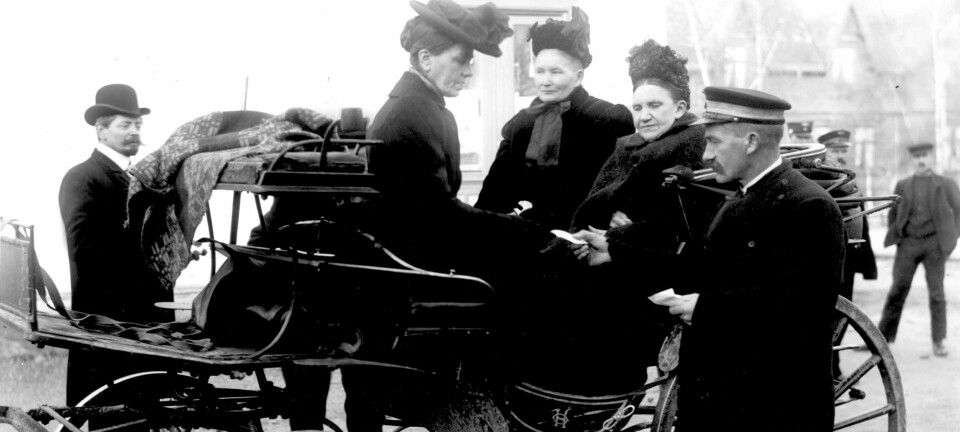
Genes influence political engagement
Your ideological position, and your participation in demonstrations and elections, are partly determined by your genes.
How politically involved you are is partly determined by something you have no control over: your genes. A new study by Swedish and American researchers suggests that between 30 and 50 per cent of political involvement can be explained by genetic factors.
“This includes ideological views, participation in political demonstrations and elections,” says Sven Oskarsson, a political science researcher at Uppsala University.
He is a co-author of the new study, published in the American Journal of Political Science.
Jarl Giske, a behavioural biologist at the University of Bergen, thinks this is plausible.

He says that politicians appeal to our values and emotions, and that this system is inherited from our ancestors.
“There is no single gene for a particular party, but politicians appeal in different ways to values like community and equal opportunities. Their appeal is largely to our inherited tendencies,” he says. Still, Giske is surprised that such a large part of people’s political involvement can be explained by inheritance.
Better theories
The interplay between heredity and environment is often used to explain human personalities and behaviour. In political science, there has been a traditional focus on environmental factors, not biological ones. About ten years ago, the first studies suggesting the importance of genetic inheritance started appearing. These studies led to a heated debate.
“Our study corroborates the theory that political commitment is, to a large extent, caused by inherited traits. The findings can contribute to a more nuanced debate on political behaviour, and to better political theories,” says Oskarsson.
Leif Edward Ottesen Kennair, professor of psychology at the Norwegian University of Science and Technology (NTNU), is not surprised by the findings.
“The study seems very solid,” Kennair says.
Trond Viggo Grøntvedt, a former lecturer in behavioural genetics at NTNU, says that past studies have shown that 30 to 50 per cent is inherited when it comes to most personality traits.
“Therefore, it is not surprising that researchers find the same for political attitudes. This kind of research helps to bridge the gap between two traditionally very different approaches. Behavioural genetics studies, after all, can identify both a genetic influence and an impact from the environment,” he says.
Responses from 2,300 twin pairs
The researchers behind the Swedish-American study analysed the responses of over 2,300 Swedish same-sex twin pairs, nearly evenly split between identical and fraternal twins.
“The subjects answered over a hundred questions relating to political opinions and involvement. They were questioned on their views on the EU, environmental policy, and if they placed themselves on the left or the right,” says Oskarsson.
Identical twins are basically genetic copies, while fraternal twins share the same number of genes as regular siblings. The researchers compared the responses from the two groups and calculated how much of each person's political commitment could be explained by genetic factors.
The environment remains important
Oskarsson emphasizes that environmental factors still play the most important role.
“It is the environment that is unique to each twin that is crucial. Moreover, it is important to see patterns over time in this kind of research. There are thousands of genes that act together to affect political decisions.”
The Norwegian scientists agree. Giske says that an individual’s personality has a substantial component that is inherited.
“In addition, learning and experience can change personality traits,” he says.
In another study, Oskarsson investigated adopted children. In Sweden, until 1970, adoptions were limited to children from within the country. In Scandinavia, we have a multi-generation register for adoptions. Researchers use information about both adoptive and biological parents to find connections between generations based on aspects such as education and political engagement.
”It seems that people vote like their adoptive parents. The likelihood increases even more if one of the biological parents also votes. Many of these people do not even know that they are adopted, which makes the results even stronger,” he says.
------------
Read the Norwegian version of this article at forskning.no
Translated by: Lars Nygaard












